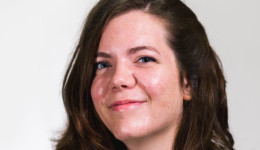Kate L




Instruments: Piano, Voice, Trumpet, French Horn, Music
Styles: Classical, Pop, Avant-garde


Kate L



Instruments: Piano, Voice, Trumpet, French Horn, Music
Styles:
Classical, Pop, Avant-garde
Where I Teach:
Ages Taught: 6-80
Bachelor Degree: University of South Florida
I am an energetic and encouraging instructor who loves seeing students get excited about learning new things. I have B.M. in Acoustic Composition and Electronic Music, 10 years of playing/performing French horn, 5 rigorous years of piano instruction and performance, and a whole lifetime of singing. I wear a lot of hats in my professional life that range from composer to ethnomusicologist (specializing in UK identities and politics in music) to performer (formerly primarily horn but now primarily piano and voice) to music administrator to teacher.
I have B.M. in Acoustic Composition and Electronic Music, 10 years of playing/performing French horn, 5 rigorous years of piano instruction and performance, and a whole lifetime of singing. During my time obtaining my degree, I learned about a plethora of subjects--standard, 18th, and 20th-century theories, theoretical applications, old and new compositional and performance techniques, timbre blending and sonority, standard and experimental notation practices, music business/marketing, etc. These extra areas of expertise lend for well-rounded color for the lessons I teach.
My methods 100% depend on where the student is and where he/she/they want to go. I have the most experience teaching young students (about 7 years old) who have had no experience or instruction in music. In such a case, I start with the fundamentals of music (how to read music), theory, and keyboard skills. Compositional exercises and etude drills (i.e. Hannon) help to reinforce the new ideas and build basic skills. If the student already has a grasp on the fundamentals, my focus goes to exercises that extend range, fine-tune timbral sound, build technical flexibility, and expand dynamic range. The repertoire is typically "suggested" by me (to reinforce learning objectives) but is not "officially picked" without the approval and enthusiasm of the student. I also heavily emphasis repertoire analysis because I believe that a student's musicianship operates at a higher level when they have well-rounded knowledge of the piece they're playing.
I think real-world application is the most important part of any educational curriculum. No matter the subject or the age/experience of the student, I begin with the traditional structures taught by universities and personalize the curriculum based on my students' learning/application goals--i.e. to teach, perform, or compose professionally/as a hobby in different formats/genres. In group teaching situations, I ensure a wide variety of approaches to each subject and encourage students to choose the approach that works the best for them. I also heavily believe in the integration of different subjects of learning in order to enhance the application of knowledge. For instance, learning about counterpoint is the perfect opportunity to include music history to track trends and usage of counterpoint and encourage practical application in the form of composition (also creating the opportunity to learn a little about orchestration). In that example alone, there are four areas of music education wrapped up in one topic.

